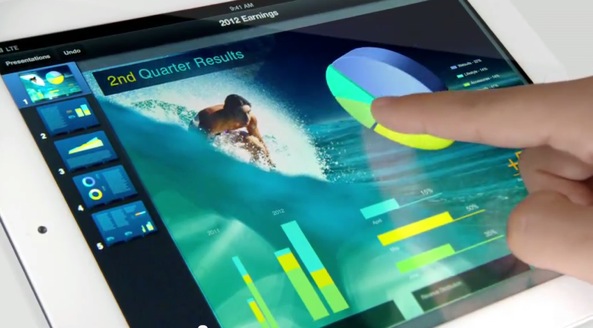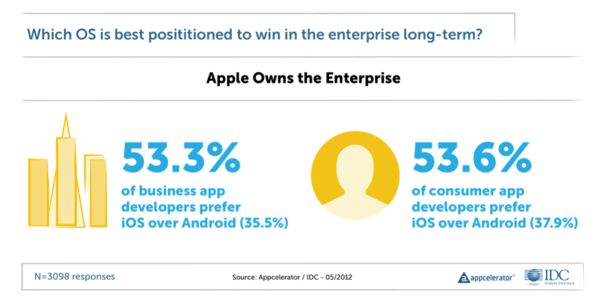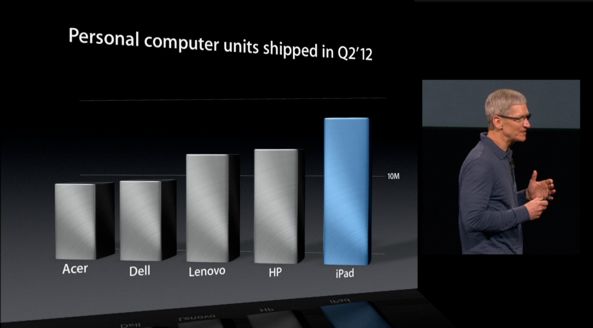Another significant win for Apple’s popular tablet brand: British multinational banking and financial services company Barclays has confirmed it’s purchased 8,500 iPads “to assist our branch colleagues to interact with customers, improving the customer experience”.
The announcement couldn’t have come at a worse time for Microsoft, whose Surface tablet hit store shelves on October 26 but so far has generated only “modest sales”, per CEO Steve Ballmer…
Barclays is planning to preload unspecified iPad models with a custom-program aptly named Mortgage Brain which helps mortgage brokers scan the entire market for available options. A spokesperson for the London, United Kingdom-headquartered bank confirmed the news to The Register on Friday.
We investigated a number of different tablet options and in this instance, we concluded that iPads were the best solution for their specific needs. We are now starting to use these across Barclays branches in the UK.
The article also cites Insight UK, a British vendor of IT solutions, noting that large UK enterprises are beginning to show “significant interest in the take up of Apple iPads”.
The iPad and big business go together like hand and glove.
A recent study of developers polled by the mobile platform company Appcelerator and market research firm IDC revealed that developers view iOS as having a significant lead over Android in enterprise.
The study noted that “Android appears to be evolving more towards a consumer play, which in turn provides a key competitive opening for Microsoft in the enterprise mobile app space”.
But for all Microsoft’s efforts to exploit its natural workplace advantage, it’s failed so far to yield tangible results. A multitude of factors are working against the Redmond firm, starting with lukewarm reception of Windows 8 in business as corporations employ the waiting tactics, mostly avoiding deployment of the new operating system over its explicit touch paradigm which doesn’t lend itself well to business needs.
Windows 8 growing pains led to the departure of Steven Sinoffsky, who headed the Windows division and previously oversaw Windows 7 development. Moreover, Microsoft’s Windows Server and Exchange offerings have been under relentless attacks from Google Apps for years now.
Google’s hosted suite is especially popular with small and medium-size business owners and the search firm just launched the new new Google Apps Groups Migration API to help businesses move their shared mailboxes to Google Apps.
The iPad growth has also put a break on the PC replacement cycle and the fact that Apple’s MacBook is the best-selling consumer notebook brand in the United States, coupled with modest Surface sales, doesn’t help either.
Microsoft is promising to fix the Surface laginess and other issues with future firmware updates and said it is listening to customer complaints concerning Windows 8. Microsoft’s consumer and entertainment division, however, is looking to give Apple and others a good run for their money.
A multitude of gadget releases is expected in 2013, including an inexpensive Xbox TV set-top box and a seven-inch tablet focused on gaming. The company is also thought to be mulling an Xbox branded smartphone of its own.
The Windows maker recently released Xbox Music service and updated the Smartglass iOS app with interesting wireless media streaming capabilities.
What’s your opinion?
Can Microsoft over time establish the Surface brand as a viable business tool?


